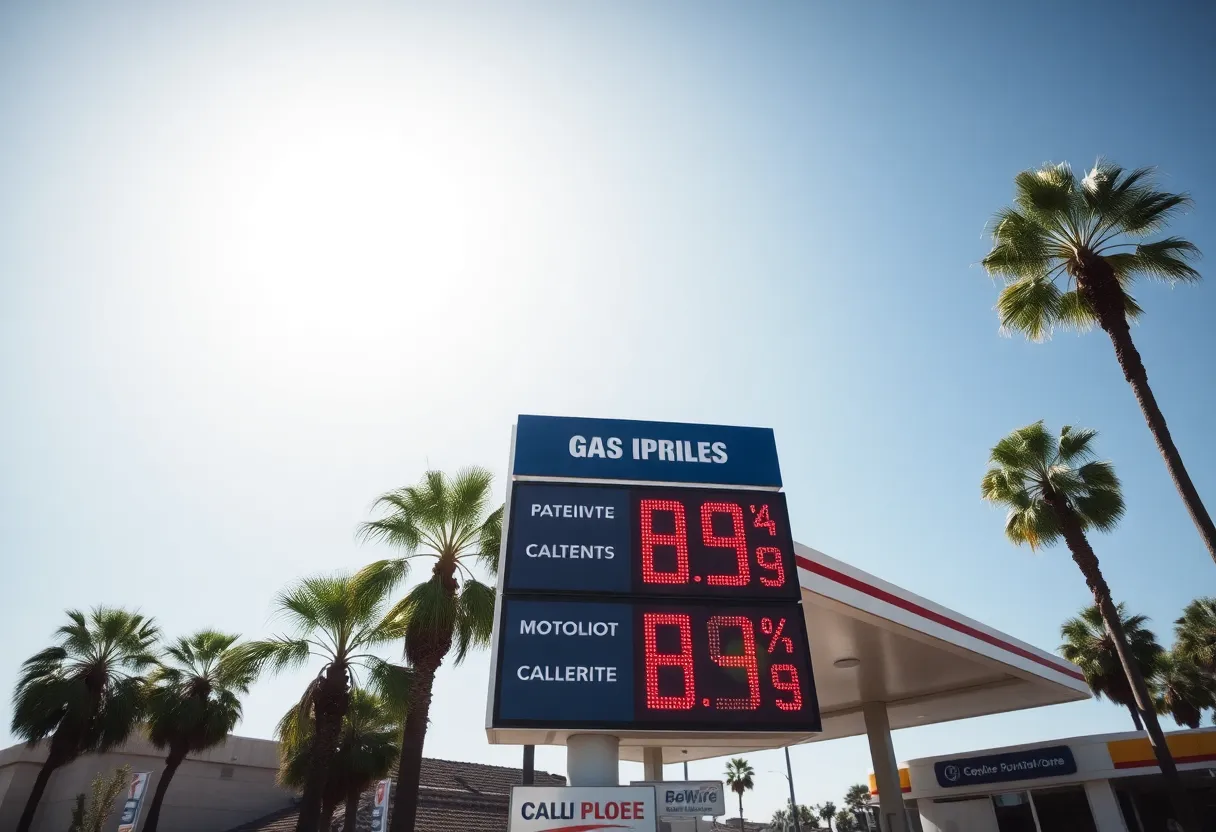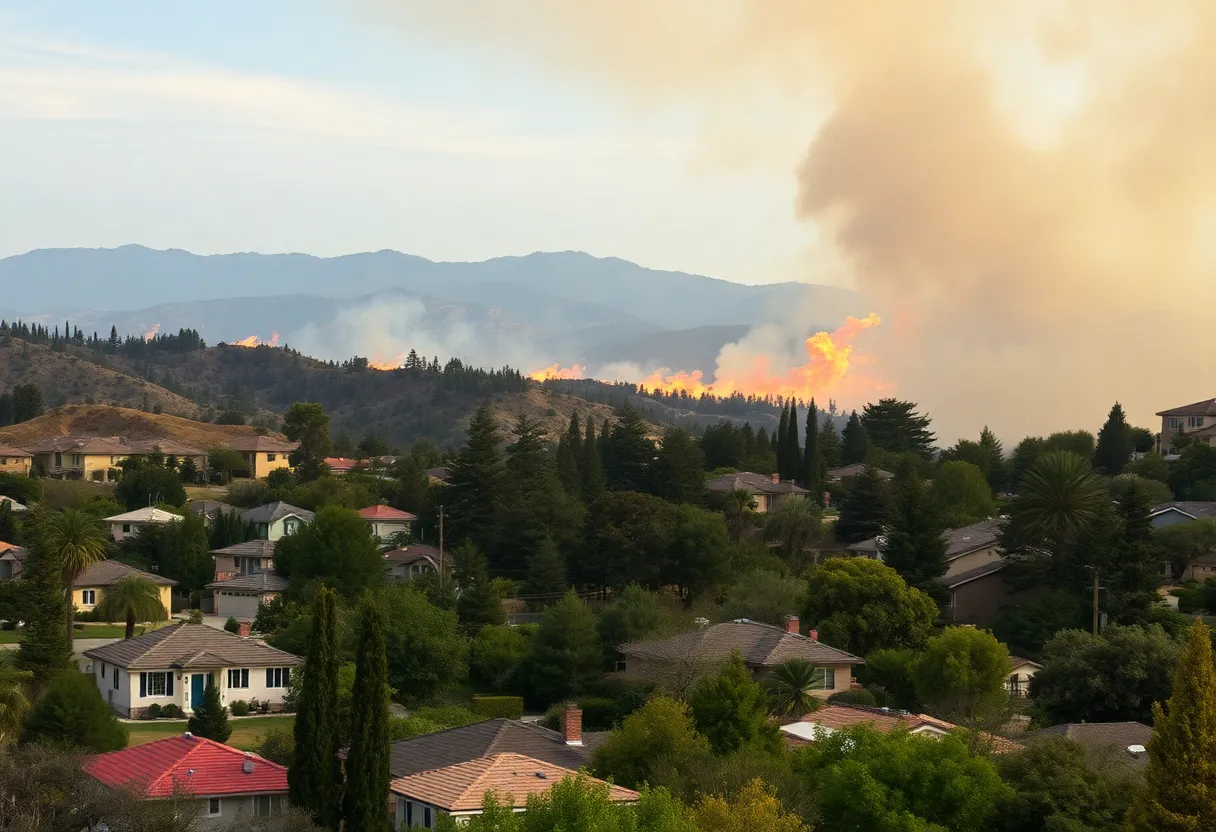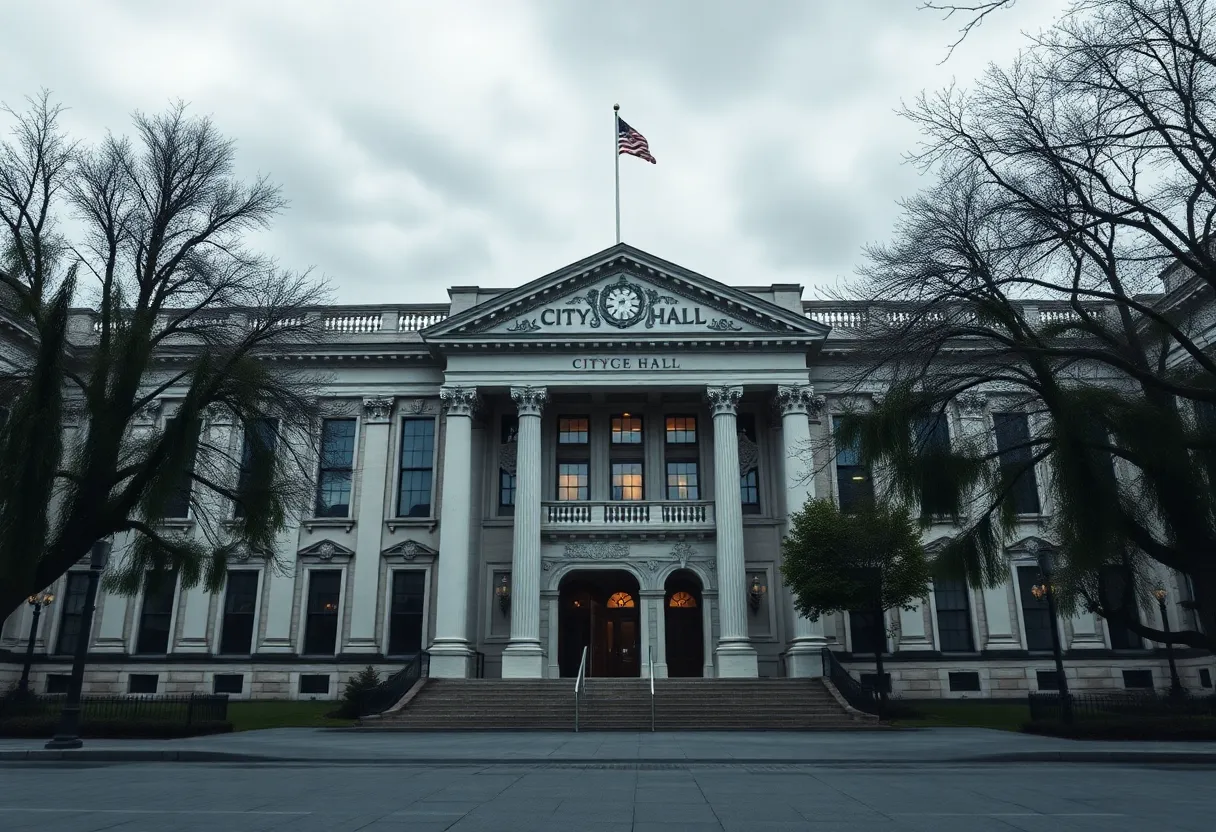News Summary
A recent study indicates that California could see gasoline prices exceed $8 per gallon by the end of 2026. The predicted price hike stems from impending refinery closures, reducing the state’s refining capacity by 21%. With current prices averaging $4.82, concerns about a potential energy crisis are growing among consumers and officials. Critics dispute the projections as unfounded while others advocate for immediate action to avert refinery shutdowns, emphasizing the importance of stability in California’s energy policies.
California is facing a potential surge in gasoline prices, projected to exceed $8 per gallon by the end of 2026, according to a study by USC professor Michael Mische. This significant increase, estimated between $7.35 and $8.43 per gallon, could represent a staggering 75% jump from current rates, raising concerns among consumers and policymakers alike.
The anticipated price rise will primarily stem from the planned closures of two major refineries in the state: the Phillips 66 refinery located in Los Angeles and the Valero refinery in Northern California. These closures could lead to a notable 21% decrease in California’s refining capacity over the next three years, potentially removing between 6.6 million to 13.1 million gallons of gasoline per day from the state’s supply chain. This creates a supply shortfall given that California’s daily consumption surpasses 13.1 million gallons while it only produces under 24% of its own crude oil requirements.
As of April 23, 2025, the average gas price in California stands at $4.82 per gallon, distinctly higher than the national average of $3.15 per gallon. The expected refinery closures combined with other factors such as increasing state excise and sales taxes, cap-and-trade costs, and shifts in the Low Carbon Fuel Standard (LCFS) are contributing to the pressures on gas prices. Moreover, California’s dependence on maritime transportation for fuel makes it vulnerable to global events, whether they be geopolitical tensions or natural disasters, further complicating the supply landscape.
The findings of Mische’s study have attracted discussion and skepticism. The Governor’s office has criticized the projections as “unsourced,” and has alleged connections to external influences, which Mische has explicitly denied. They have also indicated that the administration is proactive in ensuring a stable gasoline supply and curbing potential price spikes, pointing to the success of a recently implemented gas price gouging law.
Concerns over an impending “energy and economic crisis” are being raised by California Senator Brian Jones, who is advocating for immediate measures to prevent refinery closures that could jeopardize jobs and fuel prices in the state. Meanwhile, Colin Murphy from UC Davis has presented a counterpoint to Mische’s projections, stating they could represent worst-case scenarios. Murphy noted that the California Energy Commission is currently working on strategies designed to mitigate these risks and ensure energy stability.
While the debate surrounding Mische’s study continues, it has ignited critical conversations about the sustainability of California’s energy policies and their long-term implications for consumers. The reliance on external sources of crude oil and the projected reduction in domestic refining capacity poses significant challenges that state officials and consumers alike must navigate in the coming years.
In summary, as California prepares for potential increases in gas prices fueled by refinery closures and various economic pressures, state leaders are faced with the urgent task of addressing supply challenges while keeping the state’s energy landscape sustainable and consumer-friendly.
Deeper Dive: News & Info About This Topic
- SFGate: California Gas Prices
- Wikipedia: California
- CBS News: California Gas Prices
- Google Search: California gas prices
- KTLA: Newsom’s Office on Gas Prices
- Google Scholar: California gas prices study
- FOX LA: Gas Prices USC Study
- Encyclopedia Britannica: California gas policy
- NBC San Diego: California Refineries
- Google News: California refinery closures

Author: Anaheim Staff Writer
The Anaheim Staff Writer represents the experienced team at HEREAnaheim.com, your go-to source for actionable local news and information in Anaheim, Orange County, and beyond. Specializing in "news you can use," we cover essential topics like product reviews for personal and business needs, local business directories, politics, real estate trends, neighborhood insights, and state news affecting the area—with deep expertise drawn from years of dedicated reporting and strong community input, including local press releases and business updates. We deliver top reporting on high-value events such as major conventions at the Anaheim Convention Center, including NAMM and VidCon, exciting games at Angel Stadium and Honda Center, and developments at Disneyland Resort Our coverage extends to key organizations like the Anaheim Chamber of Commerce and Visit Anaheim, plus leading businesses in hospitality, entertainment, and innovation that power the local economy As part of the broader HERE network, including HERECostaMesa.com, HEREHuntingtonBeach.com, HERESantaAna.com, and HERELosAngeles.com, we provide comprehensive, credible insights into Southern California's dynamic landscape.




